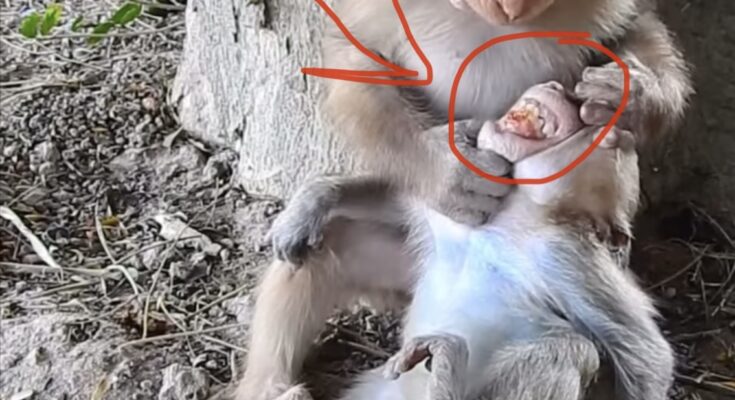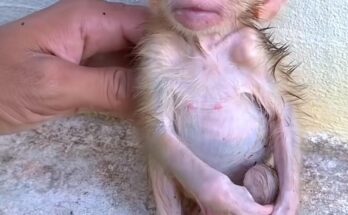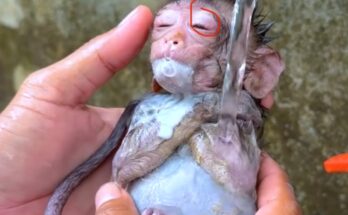In the dense green canopy of a quiet rainforest lived a small, gentle monkey named Miko. Known for his bright curiosity and playful spirit, Miko was adored by his troop and the researchers who often visited their habitat. But as months passed, something changed. Miko stopped eating his favorite fruits, his energetic leaps became slow, and the cheerful sparkle in his eyes seemed to fade. The caretakers soon discovered the heartbreaking truth: Miko had terminal oral cancer.
Oral cancer in wild animals is rare, and in Miko’s case, it had already advanced too far for treatment. The discovery shook everyone who knew him. For a creature so full of life, the diagnosis felt unfair—yet it also brought out extraordinary compassion from the humans and animals around him.
As the illness progressed, Miko faced increasing difficulty chewing and grooming himself. But rather than withdrawing from the world, he grew steadily more affectionate. The troop, sensing his vulnerability, began to care for him in subtle yet touching ways. Younger monkeys brought him softer foods, while the older ones stayed close, allowing him to rest beside them for warmth and reassurance. Their instinctive tenderness reminded everyone that empathy is not a uniquely human trait—it is woven deeply into the fabric of life.
The researchers, understanding Miko’s limited time, shifted their focus from study to comfort. They built shaded resting areas for him, prepared nutrient-rich soft meals, and monitored his pain to keep him as comfortable as possible. Though they could not cure him, they ensured he never faced a moment of suffering alone. Miko responded with quiet trust, often reaching out a small hand to touch the fingers of his caregivers—his way of saying he felt safe.
Miko’s story is more than a tragedy; it is a powerful reminder of the delicate balance of life in the wild and the responsibility humans hold toward the creatures we share the planet with. His journey teaches us that every animal, no matter how small, deserves compassion, dignity, and respect, especially in their most vulnerable moments.
As Miko’s final days approached, the forest seemed to grow quieter, as though nature itself acknowledged his struggle. Surrounded by his troop and the people who loved him, he spent his last morning resting peacefully. Though his body weakened, the calm in his eyes reflected acceptance—and a life that, while short, had been deeply meaningful.
Today, Miko’s memory lives on as a symbol of resilience and the profound emotional depth found in the animal world. His story encourages us to look beyond statistics and scientific papers and see the individual lives behind them—lives that feel, trust, and form bonds as real as our own.
In honoring Miko, we honor all animals who face illness and hardship. His legacy reminds us that kindness matters, and even the smallest creature deserves to be seen, cared for, and remembered.



